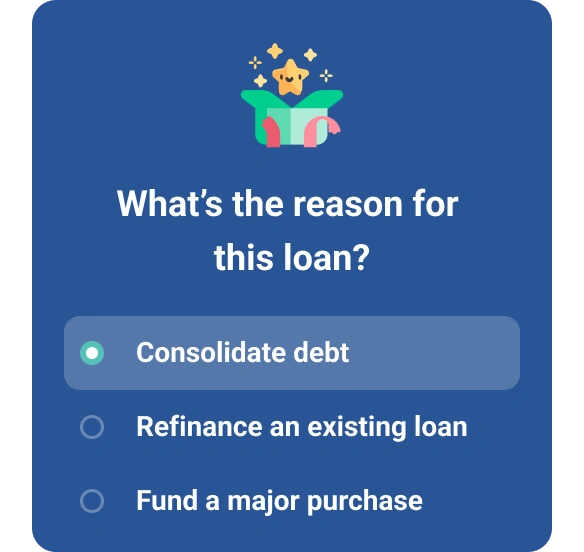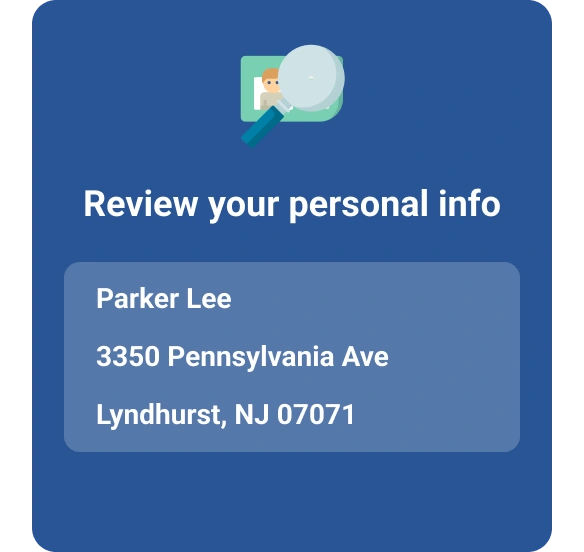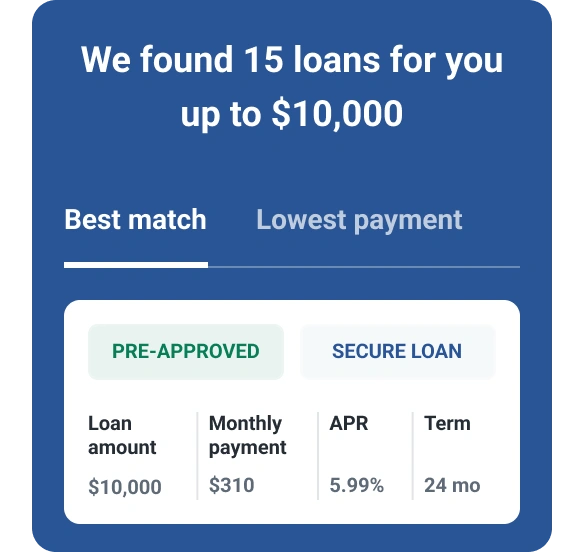Should I Get a 0% APR Card or Personal Loan?

If you need cash fast due to a sudden job loss, a health emergency or an unexpected big expense, relying on your emergency fund is always the best option. But if you don't have the savings available, you might consider using either a personal loan or a 0% intro APR credit card to help you get by. Deciding between a 0% APR credit card and a personal loan will depend on a few factors; here's how to decide on the best one for you.
How Does a Personal Loan Work?
A personal loan is an installment loan you borrow at a fixed amount and pay back in equal monthly payments. These loans are often used to help pay a large one-time expense, such as a surgery, home renovation, a wedding or a business expense. They can also be used to consolidate higher-interest debt.
Most personal loans are unsecured, meaning the lender doesn't require collateral. This differentiates them from secured loans such as mortgages or auto loans, where the item you're purchasing serves as collateral and can be taken away if you can't pay.
With an unsecured personal loan, you receive the loan in a lump sum. You repay it over a defined term (usually in years), typically at a fixed interest rate, so the monthly payments are the same. Once it's paid off in full, it's done.
While some traditional banks no longer offer unsecured personal loans, some still do, as well as many smaller banks and credit unions. Additionally, online-only lenders have emerged in recent years offering personal loans that can be disbursed to your bank account more quickly than loans from traditional lenders.
How Does a 0% Intro APR Card Work?
A credit card is a line of revolving credit, which works differently from an installment loan. While a personal loan is for a set amount and repaid over a predetermined time period, a credit card lets you borrow and pay interest only on what you use, and you can reborrow money from your credit line as you repay it. This lets you use it over and over again, which could be handy if you anticipate having recurring expenses.
A 0% intro APR credit card can be a good way to avoid interest charges. No credit card has zero interest forever, but many offer a long introductory period during which the card's balance won't accrue interest charges. When you're shopping for a new credit card, keep in mind there are two types of 0% APR intro offers you'll see, with many cards offering both:
- 0% intro APR on purchases: You can use a 0% intro APR period on purchases to buy things that you may need a little time to pay off. After the defined term—usually anywhere from 12 to 18 months—the card's standard APR kicks in and you'll begin owing interest on your existing balance and on any future purchases.
- 0% intro APR on balance transfers: When a credit card has 0% intro APR on balance transfers, you can transfer high interest credit card debt to the card and chip away at it without accruing further interest during the no-interest period. This may help you get out of debt faster thanks to savings on interest charges—just make sure you can pay off the debt before the card's regular APR kicks in.
But keep in mind, whether you've transferred a balance or used a 0% intro APR card to make an emergency purchase, you are still required to make at least your monthly minimum payment. Beyond that, it's up to you how much you want to repay each month. While this offers more flexibility in your budget, be mindful that paying minimums only can trap you in debt.
When Should I Use a Personal Loan vs. a 0% Intro APR Card?
Here are a few things to consider as you decide whether a personal loan or a 0% interest credit card makes the most sense for your financial situation:
- How much money do you need? Depending on your credit and other factors, you can find personal loans as large as $100,000, which is likely higher than the maximum credit card limit you may qualify for. If you need to make a large purchase, a loan may be best. And since the smallest loan many lenders will issue is $1,000, a credit card is probably the wiser bet for a smaller purchase or recurring expenses over a time. Also, keep in mind that carrying a credit card balance above 30% of its limit can hurt your credit scores, so even if you get a card with a high credit limit, carefully monitor your balance.
- How's your credit? Your creditworthiness helps determine if you'll get approved for a loan or credit card and what your terms will be. While those with excellent credit can more easily qualify for personal loans with low rates (under 7%) and cards that have lengthy 0% APR periods, options are more limited at the other end of the spectrum. The interest rate on a personal loan can be as high as 36% for someone with a lower credit score, and you'll be on the hook to pay the interest no matter what. If your credit scores are less than stellar, you consider borrowing with a credit card as you can avoid paying interest as you repay what you borrow within the card's grace period.
- Is it a one-time purchase or an ongoing purchase? A personal loan may be ideal for one large expense that you will then pay off over time—say, a new roof on your house or a surgery that isn't covered by insurance. If you need something for a smaller purchase or you want to be able to finance multiple purchases, a 0% intro APR credit card might make more sense.
- How fast can you repay? If you go with a 0% intro APR card and want to benefit from not paying any interest, you have to pay off your purchase before that introductory period ends. Can you really pay it off by then? If not, can you afford to pay interest on the remaining balance and pay more than just the minimum payment? If the answer is no, a personal loan could be better for you since payments are stretched out over a period of several years.
Lenders That Offer Personal Loans
As we mentioned, some traditional banks and credit unions offer personal loans, and typically allow applications to be submitted either online or in person. But if you're in need of fast cash and don't want to visit a physical branch, an online lender may be your best bet since they aim to approve and transfer funds in days. These lenders also may allow you to check your rate and the amount you can qualify for with a soft inquiry that doesn't affect your credit scores.
If your credit is fair, you may struggle to get approved for personal loans. A credit score in the low- to mid-600s might be considered fair credit, while a score under in the 500s or lower may be called poor or very poor. While you may qualify a personal loan with poor or fair credit, a lower credit score could land you at the higher end for rates. For example, if a loan provider offers a range of 7.99% to 35.99%, a low credit score will likely get you closer to 35.99%.
Know Your Credit Score
Your credit score makes a huge difference in what financing options are available to you and which rates you can qualify for. Check your credit score for free on Experian today so you know where you stand. You can also use Experian's free tool to get credit card offers matched to your unique credit profile. Experian can also connect you with personalized loan offers.
Need a personal loan?
Whether you're looking to eliminate debt or access cash fast, compare personal loan offers matched to your credit profile.
Start now for freeAbout the author
Emily Starbuck Gerson is a freelance writer who specializes in personal finance, small business, LGBTQ and travel topics. She’s been a journalist for over a decade and has worked as a staff writer at CreditCards.com and NerdWallet. Emily’s work has appeared in CNBC, MarketWatch, Business Insider, USA Today, The Christian Science Monitor and the Chicago Tribute, among other websites and publications.
Read more from Emily Starbuck

